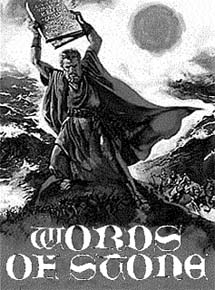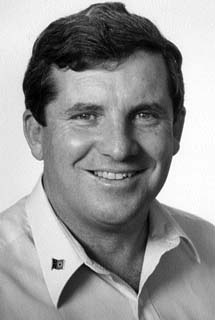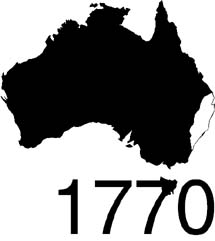When will the
Northern Territory become our seventh state?
Shane Stone, Chief Minister of the Northern
Territory
wants us to have statehood sooner rather than later.
In this article he puts his case.
In a nutshell, it is our right as Territorians
to determine our own affairs. The Territory is at a constitutional cross-roads.
Territorians have discovered that they do not have the same rights as
other Australians.
The question is, do we propose to do anything about it? The Commonwealth
Parliament could step in and abolish the Northern Territory as we know
it.
The Federal Government could do away with Self Government, alter the
boundaries of the Northern Territory, and change the way in which we
are governed.
You might be sceptical or cynical of the claims but the fact is that
it has happened.
For example, history tells us that there have been 6 major state boundary
changes to what we now know as the Territory.
Without the protection of a State Constitution there is no certainty
that a future Federal Government one day will not abolish our Parliament,
change our boundaries or challenge our rights to govern our own affairs.
We've had many promises and many disappointments. For example, did you
know that when we were transferred to the Commonwealth in 1911, the
nation was promised;
"a railway line from Port Darwin southwards to a point on the northern
boundary of South Australia proper."
The nation was promised that railway. The thrust of the argument has
always been that you build the railway as a national infrastructure
project in the national interest. You don't just build it for the Northern
Territory or South Australia.
The railway is not a figment of our imagination but dates from a historical
promise that is yet to be realised.
Not only have our rights fluctuated over the years but we have also
fought long and hard to earn them. It was not until 1922 that the Territory
gained a non-voting Member in the House of Representatives. That's right,
a non-voting Member.
Can you imagine that - going to Canberra to sit in the House of Representatives
but being told that because you are from the Territory, you are not
allowed to vote.
By 1962, Territorians had become disillusioned and angry with Canberra's
disinterest. So much so, a Remonstrance was sent to Canberra protesting
among other things: the inferiority of Territorians' rights compared
to other citizens of Australia, the failure of the Commonwealth to develop
the railway as promised, the lack of Territory say over allocation or
expenditure of government monies in the Territory, and the lack of population
stimulation incentives.
So where does that leave us today? In 1998 we have the status of a Territory
of the Commonwealth, our railway is 87 years overdue and we as Territorians
are being told we do not have the right to determine our own affairs.
It is now 19 years since Territorians achieved Self-Government. We can
forgive the slow emancipation of the Territory. We are about to turn
21 and it is time to leave home.
It is the aim of my Government that Statehood be achieved by the year
2001 to coincide with the Centenary of Australian Federation.
The Commonwealth will be 100 years old in the year 2001 and it is very
timely that the new state should be admitted.
Why statehood? - The answer is quite simply to gain equal status with
our fellow Australians.
Did you know that any Act passed by our Parliament can be overturned
by the Federal Government of the day, providing it is disallowed within
six months of its assent?
Did you know the Commonwealth can acquire the property of the Territory
and its citizens without payment of any compensation?
That's right, they can take property without compensation on just terms.
To date almost half of the Territory has been acquired by the Federal
Government under the Land Rights Act with no compensation of the kind
that would have been constitutionally guaranteed for a State.
Limitations have been placed on the application of Territory laws applying
to this land and yet we are expected to be responsible for the administration
of all land within our borders and the provision of services to all
Territorians, no matter where they live.
At least the issue of acquisition of personal property is now before
the High Court, although it's pot luck there these days.
The 20th anniversary of the Aboriginal Land Rights Act may give cause
for celebration to some Territorians but not to all.
The Country Liberal Party has always supported Aboriginal land rights.
It is enshrined in our platform and constitution. It has always been
there dating from the time of Goff Letts.
But we have never supported legislation that has discriminated against
and divided Territorians.
And after all, if the Land Rights Act imposed on the Territory by the
Commonwealth Parliament is such fine legislation, why isn't it applied
equally to the rest of Australia?
Did you know that unlike the States, uranium in the Territory is owned
by the Commonwealth as are all other minerals on Commonwealth land?
And the administration of key national parks such as Uluru - Kata Tjuta
and Kakadu National Parks is vested in the Commonwealth? That's right,
the Commonwealth, NOT Aboriginal Territorians.
And all of that notwithstanding that the Territory has demonstrated
an enviable track record of managing over 90 national parks, many of
them in joint management arrangements with Aboriginal Territorians.
We have been a testing ground for social policies conceived by southern
politicians who have had little regard or concern for the long term
impact of their decision-making.
What better illustration than if we were to vote in a national referendum
tomorrow, your vote and mine would be counted as a majority of the Australian
people. We would be counted once.
Your brother or sister living in Melbourne or Sydney would get two votes.
First he or she would be counted as a majority of the people and then
as a majority or minority of the States. Think about that. The impact
that could have on an issue of National importance, for example the
Republic.
Statehood will mean equality.
There are those who
oppose Statehood.
There are those who would argue that the Territory is not ready, that
it
doesn't really matter or - the greatest myth of all - that we can't
afford it.
It costs nothing to become the seventh State of Australia.
Your rates, power, water, sewerage and state like taxes will not increase
by becoming a state. Our Federal funding will not change.
One of the great myths put around is that the Territory receives favourable
treatment from the Commonwealth because we are a territory.
On the contrary, this is the one area where we do enjoy equal status
with the other states. Financially we are treated as a state of the
Commonwealth. And that has been the case for eight years.
Since 1988, the Territory has been included in the pool of Commonwealth
financial assistance to the States. Statehood would not alter this arrangement.
The Territory has come a long way since Self Government. But this economic
profile is not the result of luck or the benevolence of others.
It has been achieved through sheer hard work.
For years, the Territory Government has worked hard to build closer
relations with our nearest neighbours and to ensure our place in the
region.
Our population is bigger than Western Australia's when it agreed to
join the Federation of Australian States.
Our population growth is outstripping other states.
We are the economic performer in this country.
We have earned the right to become a state by 2001. Let me just remind
you of our achievements to date.
Despite our population size, we make a significant contribution to the
nation. 1% of Australia's population, and 1.6% of Australia's exports.
We are the fastest growing of any jurisdiction, have the strongest economic
performance and the highest productivity in the nation.
In 1995 the Territory's 8.4% rate of economic growth was in the same
league as the newly industrialised nations to our north and was nearly
three times higher than the Australian average of 3.1%.
Territorians generated over $1.14 billion in exports in the 1995-96
financial year - over 50% greater than national per capita figures.
And likely to be $1.4 billion this year.
The average age of Territorians is only 28 years, which is another factor
contributing to our strong population growth of 2.7% and the fact that
Territorians are 17.3% more productive than the average Australian.
The $300 million live cattle export trade is a fine example of the Territory's
productivity.
In 1995, 60% of Australia's live cattle exports to Asia were exported
through Darwin - a phenomenal 1200% increase since 1990. In 1996 close
to 400,000 head of cattle passed through our wharfs.
We are working collaboratively with our sister States of both South
Australia and Western Australia to ensure the economic future of our
children. The partnership between the Territory and Western Australia
to expand the Ord River Project is a good example.
Over the next 20 years our respective governments will increase the
amount of land under cultivation to nearly 80 000 hectares - more than
5 times its present size.
This will see the ultimate creation of the largest agricultural area
in north western Australia and ensure that we are well positioned for
trade in the region and at home.
Exports of beef, broad acre and horticultural crops will be significantly
increased when the project is realised.
We are working in partnership with South Australia to complete the railway
and are joint venturing in other markets offshore.
Territorians can stand proud of our achievements both in the region
and at home.
The Country Liberal Party - the CLP - delivered Self-Government to Territorians
and we will be the party for Statehood.
I have the unequivocal support of all of my State and Territory colleagues.
The great turning point for us as Territorians was the support and commitment
by the Prime Minister John Howard to Territory Statehood. Although not
committed to the year 2001. He supports Territory statehood, and has
signed off on the COAG Agreement to us becoming the seventh state.
So where to from here?
Who decides whether we should be a State? The simple answer is that
we do - we Territorians.
One of the issues that we need to consider is whether we have a referendum
in the Territory on the issue of Statehood, our constitution or both.
These are issues that we will be discussing as a community in the time
ahead.
There are others who say that a referendum is not necessary on either
issue - the cry is "get on with it". All public opinion polling
in the Territory has shown overwhelming support for Statehood.
Much however depends on the attitude of the Federal Government of the
day.
Our new Constitution, assuming Territorians want a Constitution, must
be home grown and prepared by Territorians for Territorians.
The Territory has great potential and the sky is the limit. You can
be anything you want to be in this Territory of ours.
But we are now being challenged with defining our future, that of our
children and of our grandchildren. And it is important that we do it
together.
Postscript
Since Shane Stone made the speech from which the preceding article was
extracted, the Statehood Convention has begun sitting in Darwin.
The four basic questions it is addressing are: 1 - Do we want Statehood?,
2- If we do then when?, 3 - What should the new state be called?, 4
- What sort of constitution should the new state have?
Denis Burke has produced what the CLP regard as a 'simplified' version
of the original draft constitution which was produced by the Sessional
Commitee chaired by Steve Hatton.
There is concern from Aboriginal groups, Local government, Labor and
others that the Burke model does adequately represent all Territorians.
Labor's vision
for Statehood
Maggie Hickey, Leader of the Opposition
puts forward Territory Labor's ideas
on Statehood for the Northern Territory
Territory Labor believes that the following principles
should apply in our quest for Statehood.
* That Territorians deserve a better system of Government.
* That Territorians deserve a modern Constitution that protects our
rights.
* That Territorians should be able to vote for who should represent
them at a Constitutional Convention.
* That a referendum should be conducted on the outcomes of the Convention
and not just decided upon by the Members of the Legislative Assembly.
A Constitution contains laws which are designed to control politicians.
The final decision on the content of the constitution should not be
made by the very people it is intended to control.
Territory Labor believes that we should become a State. We also believe
that we must have the right building blocks in place for that to happen.
We need a community that is united on the major issues and not divided
along racial or other lines. We need to demonstrate to other Australians
that since Self Government, the democratic rights enjoyed by other Australians
are available in the Northern Territory. Principles like Freedom of
Information legislation, a Privacy Act, an independent Electoral Commission
are all a part of this. In the Northern Territory we have none of these.
For twelve years, under the Chairmanship of Steve Hatton, an equal numbered
parliamentary committee of Labor and Country Liberal Party members developed
a draft constitution. This set out the democratic principles in any
free State.
It also sought to ensure that existing rights would be protected. This
was to reassure all Territorians that they would not be worse off as
citizens of the new State and to encourage positive participation in
the process from all sectors of the community.
By denying Territorians the right to vote for their delegates to the
Constitutional Convention and by denying Steve Hatton a place at the
convention, Shane Stone has revealed himself as an opportunist of the
worst kind. He is clearly prepared to put at risk community unity and
our reputation nationally, to push through his own, narrow agenda. This
may well destroy any chance for Statehood in the near future.


"We are about to turn 21
and it is time to leave home."
"It costs nothing to become
the seventh state of Australia."
"Our new Constitution must be
home grown and prepared
by Territorians for Territorians"

